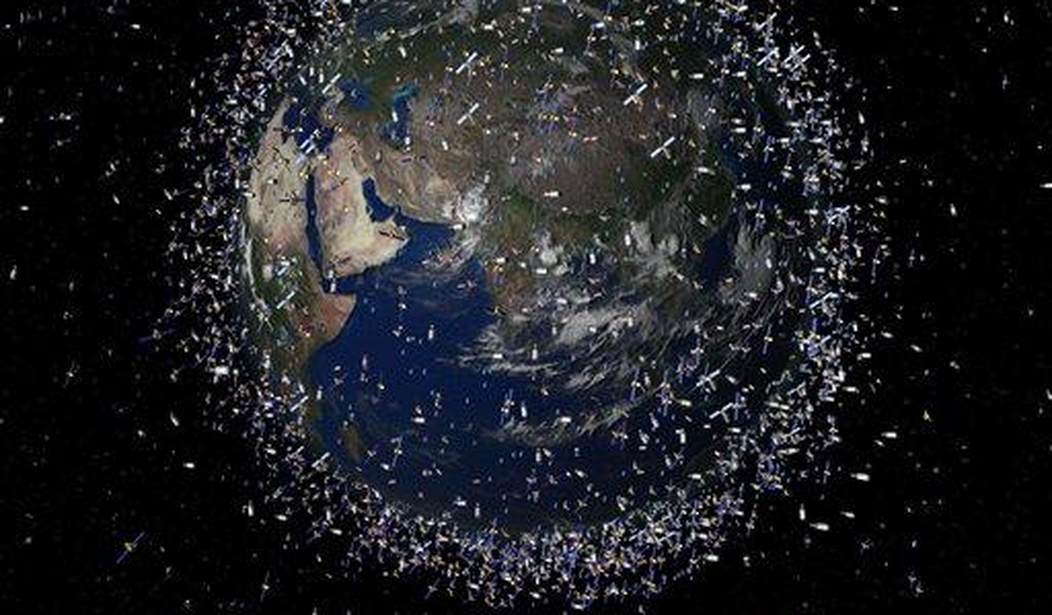Space is big. But as everyone knows, humans litter and cause traffic, and we’ve been doing it in space now for over 50 years. There are now over 9000 tons in orbit, and roughly 80% of it are debris and spent rockets just waiting to strike other spacecraft. This orbital minefield has doubled since the year 2000, and the pile up is accelerating.
Unchecked, our littering problem could fill Earth’s orbit with shrapnel and imprison humanity for centuries, yet Congress seems unsure whether to do anything about the problem.
The real shame is that the solution is simple. This budget cycle, $10 million has been requested to develop space situational awareness systems, technology to avoid collisions and creating even more space debris. When a communication satellite costs $200 million, not including launch costs, $10 million is a small amount to keep Earth orbit open for business and safe from a costly collision.
The current system is antiquated. The U.S. military uses aging equipment and processes left over from the Cold War to track debris and warn those in orbit. Modernization is required. And most critically, this system is unable to scale to meet the rapidly approaching demands of the space economy.
A solution includes crowdsourcing data about space traffic, analyzing data in the cloud and sending accurate, timely collision warnings. Solving the issue of space debris calls for the same big data aggregation, cloud-based analytics, and customer service architecture that we take for granted in 2019–a system like ATMs or Google Maps.
The first phase of the solution calls for an organization that can build relationships and enlist a wide variety of data sources--the defense community, international partners, and the emerging commercial space industry. A civilian agency’s ability to collaborate freely, without the fear and mistrust of national defense will be an asset in working with international partners. The $10 million in the budget request will bring significantly greater commercial capabilities and innovations to the table. Like any big data project, we need datasets that are as large as possible and must be compiled and normalized. The Department of Commerce is the one organization that has the expertise and positioning to fulfill these requirements.
Recommended
The second phase requires a black box in the cloud to analyze the data and quickly predict collisions. This machine-to-machine system does not exist today. A recent GAO report said that the DoD has spent nearly half a billion on this issue over 10 years with almost nothing to show for it, largely because they used outdated, top-down design methods. The DOD has publicly stated it wants to hand this system off to a civilian agency to try a fresh approach, and the Department of Commerce is ready to do so today.
Tapping into commercial innovations is the way forward—both the structure and mechanics of big data analytics are well understood in the private sector. While space situational awareness is essentially rocket science, it’s still far simpler than what the legions of Google and Amazon servers do without human aid to find your cat pictures online or ensure your online retail therapy is delivered. Empowering startups working to develop these cloud analytic solutions is a relatively inexpensive way to bring minds together to tackle the business of space debris.
The United States leads the world in disseminating information than can protect lives, investments, and the orbital environment. Will we wait until we lose a space asset that costs hundreds of millions to replace, or will we spend a fraction of that and become the leader in space? If the US doesn’t act to avert disasters, we will still pay the price of the disasters. And replacing satellites isn’t cheap.
Though there are technical questions to be answered, the real problem of space debris is political.
The Senate indicated it would fund only 1.8 million of the 10 million requested to begin tackling space debris, and the House is hardly much better. Their brightest idea was to fund a one-year, million-dollar study to decide which bureaucracy will solve the issue. One wonders when we’ll finally get around to solving the actual problem. Space debris collide at over 20,000 miles an hour. Unfortunately, Congress moves somewhat slower. Their choice this budget cycle may decide which comes first: do we spend 100-200 million to replace a critical satellite or just 10 million to begin developing a collision avoidance system?
Before lighthouses became tourist attractions, they protected valuable sea trade under the direction of the Department of Commerce. To ensure the continued growth of the space economy, Congress must fully fund the next generation of lighthouses—the Department of Commerce’s space situational awareness database.

























Join the conversation as a VIP Member